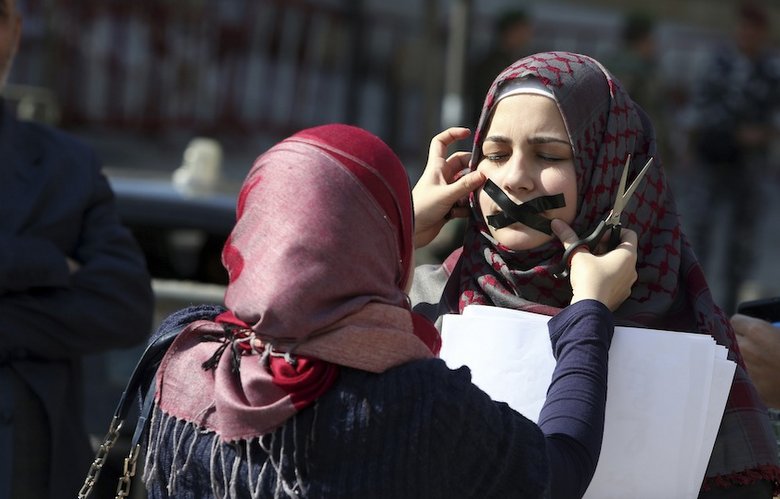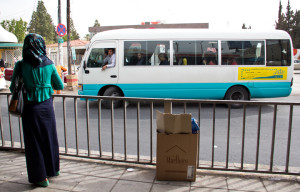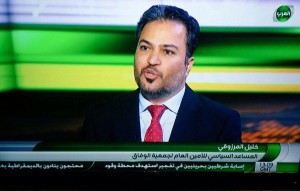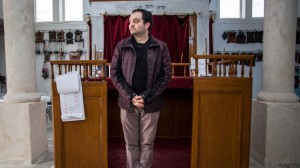Written by MARY ANN ZEHR with contributions from YASMINE MOUSA
AMMAN – Omar Al-Hmoud gets frustrated when Iraqi parents tell him they haven’t enrolled their children in Jordanian schools because they soon expect to be resettled in another country. The deputy country director for Mercy Corps, an international nonprofit organization that provides aid to displaced Iraqis in Jordan, Mr. Al-Hmoud knows that resettlement can be an elusive dream.
He’s concerned that a generation of Iraqi young people are missing out on getting an education while their families wait to move elsewhere.
Mr. Al-Hmoud believes many Iraqi children are not attending school, even though Jordan opened its public schools this academic year for the first time to Iraqis without legal residency. Before the official decree, children were enrolled on a case by case basis, depending on the school, he said. As many as 19,000 Iraqi children attended Jordan’s public or private schools, according to Mr. Al-Hmoud.
Imran Riza, the representative in Jordan for the United Nations High Commissioner for Refugees, said in a Feb. 3 interview that the enrollment of 24,000 Iraqis in Jordan’s private and public schools this school year is “extremely low.” U.N. officials had expected about 50,000.
In a recent needs assessment of 3,000 Iraqi families-out of the estimated half million living in Jordan-Mercy Corps found 762 students who weren’t in school. The organization’s staff members will soon conduct a follow-up study to find out why.
But informally, Mr. Al-Hmoud, who is Jordanian, has already identified a few reasons why he believes some Iraqi children aren’t in school. Among them:
- Parents are afraid to step forward because they worry they may encounter problems if they make it known they don’t have legal residency in Jordan.
- Iraqi children are behind academically because they’ve missed so much school.
- Parents may feel their children won’t be comfortable going to school with Jordanian children.
- Families lack transportation.
- Families face serious economic problems.
Nonformal and Informal Programs
Mr. Al-Hmoud points out that the Jordanian Ministry of Education has a regulation barring children who have missed more than three years of school, regardless of their nationality, from enrolling in regular public schools.
Many displaced Iraqi children fall into that category. So Mercy Corps, in partnership with Questscope, an international group that works to help the disadvantaged in the Middle East, began this school year to include Iraqi children in “informal” and “nonformal” education programs in Jordan.
Nonformal programs are delivered at public schools and follow a curriculum written by Questscope and approved by the Ministry of Education. Teachers must be certified. Informal programs are meant to prepare students for more formal schooling. Such programs are operated at community-based organizations and don’t need the approval of the ministry. Mr. Al-Hmoud said the informal programs have actually been more attractive to Iraqis than nonformal programs.
English and computer skills are among the lessons taught. For many children, this is the only “school” they attend, though a few are also enrolled in regular schools.
Mr. Al-Hmoud is determined to get more Iraqi children enrolled at least in nonformal programs, which provide more rigorous classes than informal schooling. The biggest challenge in helping displaced Iraqis in Jordan is “outreach,” he said. The Mercy Corps leader tells Iraqi parents they shouldn’t put their children’s education on hold even though their future in Jordan is uncertain.









